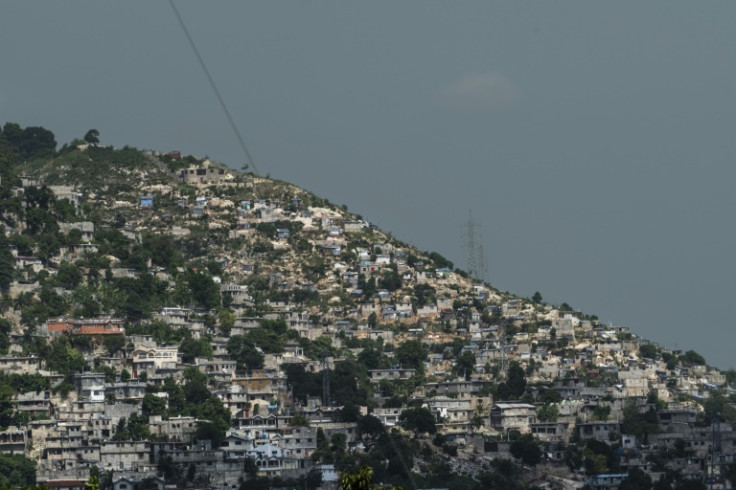Kenyan Security Force Arrives In Violence-ravaged Haiti

Kenyan police arrived in violence-ravaged Haiti on Tuesday on a UN-backed mission to help wrest the Caribbean nation from powerful gangs, just as deadly turmoil gripped Nairobi during mass protests.
A Kenya Airways airplane landed in the Haitian capital Port-au-Prince's airport after months of waiting for a security force in the Western Hemisphere's poorest nation.
An AFP reporter saw the first of the initial batch of 400 officers arrive on the tarmac, with hundreds more police expected both from Kenya and other nations.
Kenyan President William Ruto had ceremonially seen the police off Monday in Nairobi, in what he described as a "historic" mission of solidarity.
But Kenya a day later became engulfed in violence, with protesters breaching parliament and a fire erupting at the governor's office.
Footage showed police trying to douse the flames at City Hall with a water cannon, and rights groups accused officers of firing live rounds, leaving at least five dead and dozens wounded, according to the NGO Kenya Medical Association.
The violence quickly escalated from protests, mostly led by young people, triggered by tax hikes proposed by the cash-strapped government.
Ruto had gone ahead with the Haiti mission despite a court case from a small opposition party which accused him of doing the bidding of the United States.
The multinational force, approved last year by the UN Security Council, had already been on hold for months after a Kenyan court asked the government to secure a bilateral government with Haiti.
Garry Conille, the acting prime minister in a new Haitian transitional government, hailed the deployment of the Kenyan force.
"I salute the determination of the Haitian people to stand with Haiti in its fight against the insecurity that has gnawed at society," he wrote on X.
"The Haitian government and people hope that this multinational mission is the final one that helps bring stability," he said, and "a return to effective democracy."
The United States had been eagerly seeking a country to lead the mission and is supplying funding and logistical support.
But President Joe Biden flatly ruled out US boots on the ground in Haiti, which has a long history of US intervention.
Biden, who is seeking reelection, proudly ended America's longest war in Afghanistan, saying it was not worth the risk to American lives.
The US president welcomed Ruto for a rare state visit to Washington last month in which he hailed Kenya as a key US partner on democracy and security, praising its efforts in Haiti and also other hotspots including neighboring Somalia.
With the arrival of the Kenyan force, State Department spokesman Matthew Miller said that the United States is hoping for "further measurable improvements in security" in Haiti.
Other countries that have expressed willingness to join the mission include Benin, the Bahamas, Bangladesh, Barbados and Chad.
Haiti has long been rocked by gang violence but conditions sharply worsened at the end of February when armed groups launched coordinated attacks in Port-au-Prince, saying they wanted to overthrow then-prime minister Ariel Henry.
Henry announced in early March that he would step down and hand over executive power to a transitional council, which named Conille as the country's interim prime minister on May 29.
The violence in Port-au-Prince has affected food security and humanitarian aid access, with much of the city in the hands of gangs accused of abuses including murder, rape, looting and kidnappings.
© Copyright AFP 2024. All rights reserved.











